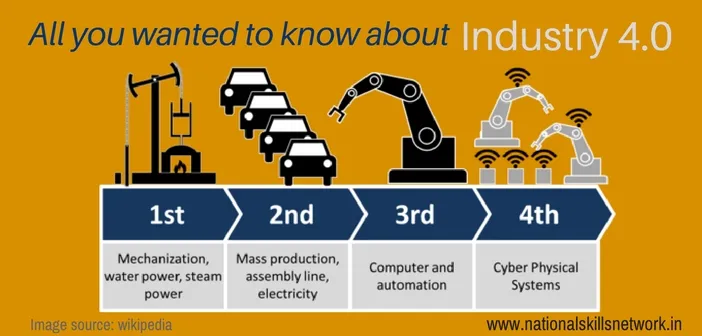Developing Global Skills & Competencies in Industry 4.0

Technological advancement allows machines to do many of the tasks that humans used to be asked to do. There will be a major impact on the future employment status due to this upcoming automation revolution Almost all jobs will change, many profoundly, and the overwhelming majority of the workforce today. You need to develop new skills. One of the defining business concerns of our day is preparing for the future of work, but most firms are unprepared for it. Companies will need to adapt or implement Industry 4.0 technologies and principles in the next five to ten years if they want to exist and remain competitive in their respective industries.
Companies can use different approaches to fill skills gaps. You can search outside the organization and hire new employees with the right skills. They can build skills in-house, retrain current employees to prepare them for new jobs, or use a hybrid strategy, such as deploying qualified contract workers to address short-term demands while developing the necessary skills in-house.
Most companies will likely adopt a combination of these models. Perhaps in the external market, they are looking for admittedly specialized and highly technical roles such as data scientists, while from their point of view they are looking for new front-line roles such as robot controls and production exception controls. It is expected that in the near future businesses would put extra efforts into retaining and retraining their existing staff if and where possible.
This skills gap is caused by four factors :
- It is predicted by The World Economic Forum�s Future of Jobs Report that automation aims to do away with 85 million jobs by the year 2025. Employees will be able to take on more strategic and senior positions in the company if they have the necessary skills.
- New technologies necessitate the acquisition of new abilities. All of these new technologies, such as artificial intelligence, data analysis, blockchain, and robotics, necessitate the acquisition of new and scarce skills.
- Emerging roles. As technology advances, new roles are being developed to monitor, plan, and troubleshoot machines. It is predicted that 97 new million occupants could emerge who are better fitted in �the new division of labour between people, computers, and algorithms�� by The World Economic Forum
- Other technologies are being developed. We can't forecast what new technologies will emerge, so we can't predict what skills those technologies would necessitate.
One of the upcoming essential features of every company�s automation and digital strategies is to plan for the future of work. The need to trade in business-intensive companies and industries is especially great as technology is fundamentally changing the way your work is done.
Comments

Leave Comment


 ARYAN KHANNA
ARYAN KHANNA


No Comments ...